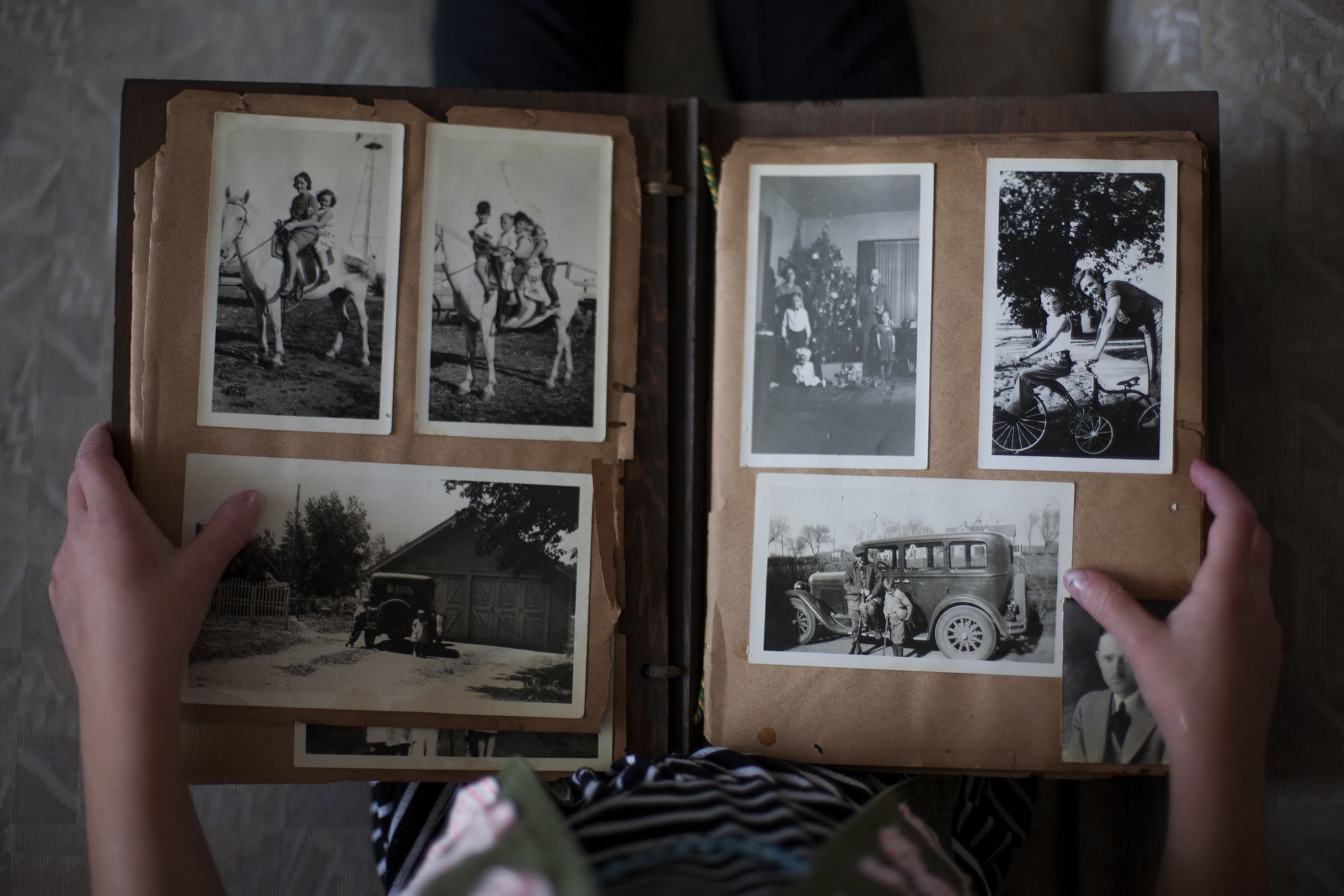The memory problems associated with living with dementia are far more complex than just simply forgetting everything. In this article, we explain how this can affect people, and the difference between remembering events and emotions.
Understanding the complexities of memory loss can be puzzling. A great starting point is the Bookcase Analogy. It’s explained really well in this video – and you can read the transcript of the video here.
Essentially, it shows our memories as books on a bookcase, with our life’s memories in ascending chronological order from childhood at the bottom to our most recent memories at the top.
When we get dementia, this bookcase, which is a little rickety anyway due to general old age, becomes even less sturdy. It rocks and sways around, and the books at the top, those recent memories, come tumbling down.
The books at the bottom of the bookcase are obviously safer and we lose far less of those. But still, our memories start to go and the more recent they are, the more of them we lose. Using this analogy you can easily see how dementia affects our short-term memory.
We do, however, have another bookcase. A feelings and emotions bookcase. This contains all our feelings and emotions from our lives, stored in the same order as our memories. This bookcase however is strong and sturdy, made of oak. It hardly moves and we lose very few of our emotional responses and feelings about events.

How this translates in real life is like this:
Imagine you go out for afternoon tea with your adult granddaughter. You have a lovely time, laugh and share cake and it is a happy day. Once you return home, the memory of that event goes on the top shelf of the first bookcase, and the feelings from that event go on the top shelf of the other bookcase. Quite quickly, the first bookcase shakes about and the memory of the afternoon tea falls out, gone forever. But on the second bookcase, the feelings remain on the top shelf, safe and secure, not moving. The afternoon’s events are forgotten, but the happy feeling of familiarity, laughter and love remains.
This is so, so important to remember. People living with dementia will not remember what you said or did, but they will remember how you made them feel. This is why encouraging family members to keep spending time with a loved one, focusing on warmth, love and kindness, is so incredibly important.
It also illustrates how vital activities are, because if we can make people feel good, those feelings will last them all day.
The Bookcase Analogy in Activities
There is another benefit to understanding memory in this way too. Some long-held memories are retained, such as the memory of how to read, play cards, sing or paint for instance, so we can incorporate these into daily activities easily.
This is also what makes using certain books successful. Even when a person can no longer retain the information, sometimes the ability to read and enjoy it in the moment is enough.
Memories of words and phrases may also be long-held. Sayings such as ‘Daft as a brush’ and ‘Wise as an owl’ (similies) or ‘Painting the town red’ and ‘A penny for your thoughts’ (idioms) are often retained, even after their meaning is forgotten. These are great to use in a short quiz.

Other memories such as how to wind wool, how to fold fabric and how to dry dishes are memories that are probably somewhere on the lower shelves of the bookcase and can be used to create meaningful everyday activities that will help people feel they are doing something purposeful.
We all know the strong memories around music and songs. If we think about this in the context of the bookcase analogy, we learnt to sing early on in our lives and songs hold very strong emotional memories. Even when we can’t remember or don’t know the words, the ability to hum is still with us. Equally, songs are deeply linked to our emotions, so certain songs and music can simply make us feel happy.




